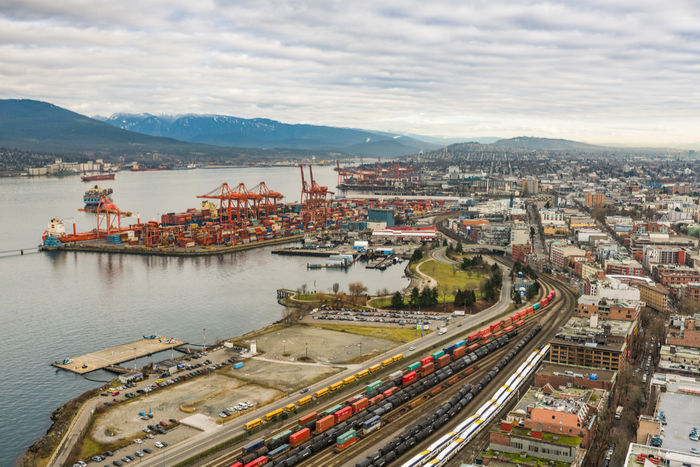PortEconomics member Adolf Ng was given grant as a part of $25 million in funding from the Government of Canada, through the Canadian Institutes of Health Research to carry out a study on supply chains resilience under the pressure of a global pandemic like COVID-19. Adolf will study how resilient supply chains are during the crisis, especially considering the impact of the novel coronavirus on major ports like Vancouver.
The study will look at the current strengths and weaknesses of the Canadian current supply chain system locally and globally, and what is the type of market and demand this supply chain is working for. The study has four objectives, to see how Canadians react as individuals and as a society to supply and demand, to identify attributes for information sharing and coordination between cities and countries in pandemic planning, facilitating solutions to different location in a geographical context especially those with weak health systems, and to develop solutions and supporting framework to government and society to mitigate the record spread of the COVID-19 pandemic. In Canada he will be studying Manitoba, Ontario and B.C. as distribution points, while Adolf will also include three cities in China, Wuhan, Beijing, Guangzhou and Hong Kong.
“Nowadays a lot of the basic necessities and supplies are not produced in Canada, many of them are produced somewhere and they come all of the way across the ocean from different parts of the world. The global supply chain is not just about going from China to Vancouver, it also has a long way about the inland distribution and the inland logistical systems and how stuff when they arrive at the gateway port and the gateway airport, how would they be distributed to the inland. [..] The supply chain is quite delicate and something as simple as a sudden rush increase in purchases — like say on hand sanitizer or toilet paper — will collapse or disrupt it. To prevent this, however, there is a simple solution: do not do anything” said Adolf.
One of the best ways to help to relieve this problem is to try to live as normal as possible and then a lot of these things we will be able to sort out.
The long-term impact of this project will help countries like Canada plan their logistics and supply chain in the future to help negate some of the panic and pressure on workers in the supply centres and a warehouses and factories. This will help make decisions about how to minimize waste when it comes to resources.











